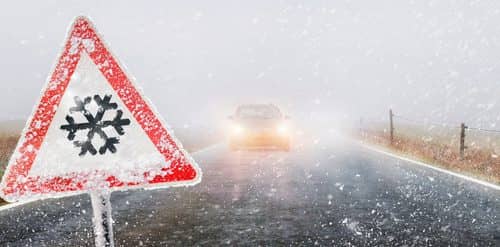Personal Injury specialist Chris Tagg takes a look at the hazards associated with winter accidents.
Winter.
Christmas is over and if you took careful note of my pre-Christmas tips hopefully you didn’t saw your thumb off, fall off a ladder putting the decorations up or give your entire family botulism from the turkey.
I am always anxious to tell people what to do, and so after a peculiarly warm New Year, I notice the frost in the air and a definite chill in the morning. With this in mind, it is time to think about how to stay safe during that perennially expect event, the British winter. The winter roads in Devon can be treacherous from the Expressway to Mucksy Lane Cross, there are hazards around every corner and on the straight bits as well.
Visibility is often reduced in the winter. Fogs and mists can spring up from nowhere, rain and snow can limit the distance you can see, the evenings are darker earlier, and the sun is low in the sky. For a driver, make sure your lights are in good condition; they will get covered in road dirt, but they are essential in order to see and be seen on the roads. The difference between dirty headlamps and clean ones is enormous, don’t underestimate it. Likewise, your windscreen will be misted up in the morning, iced over may be piled high with snow, 10 minutes clearing it and demisting the windscreen and the other windows of course will make the roads safer for you and for everyone else.
If you are walking or you are cycling, then the visibility is tremendously important. A lot of cycling kit is in dark colours. Dark colours on dark roads on dark evenings are harder to see, bicycle lamps are now tremendously effective, invest in a good set and be seen for miles.
If you are walking on Devon lanes the same applies. Whatever happens it pays to be visible; drivers need to need no excuses; but traveling towards the low winter sun with Devon hedges either side and, maybe trees overhead, a bright jacket certainly gives you an advantage. Check the Highway Code for the best place to position yourself if there is no pavement.
Control follows on from visibility. If you can’t see, you can’t avoid the accident but if we’ve established that we can see the road, the other cars, the bicycles and the pedestrians, we need to be able to know that we can avoid driving off it or into them as applicable.
ROSPA do a very good fact sheet on winter driving which is worth refreshing yourself on, A dodgy headlight you might not even notice in the summer becomes highly dangerous in the winter. Tyres or brakes that aren’t up to the job will put you and everyone else. And then there is the at question of your style of driving.
Your stopping distances won’t be the same, you cannot rely on every bend being free of frost or ice even when the sun is up and the frost seems to have gone pockets remain in dips and in the shadows of trees and walls and they can be enough to cause you to lose control. Think about your speed, think about your road positioning, think about your breaks.
Also consider other people around you, if the driver in front brakes can you stop in time? If you stop will the driver behind be able to? As a cyclist you will find the roads are in worse condition. Stay away from the kerb, stones, fallen trees and ride defensively.
On two legs, the same concerns apply. According to ROSPA, there were 255,000.00 fall related emergency hospital admissions amongst the over 65s last year. Roads and pavements will be slippery leaf mould, and incorrect footwear can all magnify this. Better ugly shoes than an ugly bruise and it is important not to minimise the potential effects of falls even for young fit people. All it takes is a dose of bad luck.
Last of all there is the question of preparing for the worst. However you get out and about you don’t want to get stuck, but if you do, be prepared.
Make sure your car or bicycle is properly serviced and maintained and that any cars have antifreeze in them, and make sure that any shoes have decent grip on them.
If there is the possibility that you might be stuck for any period of time, carry the essentials, things like a blanket, a shovel, some water and a powerpack for your phone.

With this cheeriness in mind I wish you all a Happy New Year and in the nicest possible way hope not to see you in 2022. But if you do need see me then please contact me at your own convenience.
Chris Tagg, Personal Injury Specialist at Wollens.
If you or someone you know has been affected by an accident you can contact Christopher Tagg, Wollens personal Injury specialist for a free initial consultation on 01803 213251 or via email, [email protected] . You can also complete an online enquiry form. One of the Wollens team will contact you as soon as they are available.



